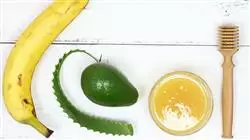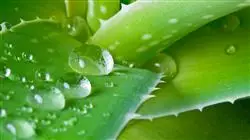University certificate
The world's largest faculty of nutrition”
Introduction to the Program
Obesity, being overweight, diabetes... You will be aware of the latest developments in the management of patients with digestive pathologies by means of Phytotherapy through this Master's Degree"

Technological advances have made it possible to obtain greater progress in the precision of the active ingredients that make up phytotherapeutic products. In addition, the latest scientific studies have discovered their effectiveness in the treatment of different pathologies such as respiratory, gynecological or digestive system diseases.
In this journey of Phytotherapy, nutrition joins it to integrate its benefits in the approach to patients with endocrine, metabolic or digestive disorders, without ruling out its application in other pathologies. This fusion has a positive impact on the patient's health and has opened up new lines of research. Given this scenario, the nutrition professional must be aware of the latest developments and, for that reason, this Master's Degree in Applied Phytotherapy is born.
A program with an extensive specialized teaching staff that will bring the professional closer to the most current knowledge on the treatment of obesity, overweight, diabetes or gastritis through innovative teaching tools. Likewise, throughout the 12 months of this program, the nutritionist will be able to delve into the use of phytotherapy in cardiovascular diseases, urinary system disorders or parasitic diseases.
All this, moreover, in an educational program taught exclusively online, which can be accessed comfortably from a computer or tablet, 24 hours a day. In addition, the professional will be able to distribute the teaching load according to their needs, allowing them to combine their work responsibilities with an education that is at the academic forefront.
TECH puts at your disposal the most current teaching tools so that you can obtain the most advanced and recent knowledge on Applied Phytotherapy"
This Master's Degree in Advances in Applied Phytotherapy contains the most complete and up-to-date scientific program on the market. The most important features include:
- Practical case studies are presented by experts in Phytotherapy
- The graphic, schematic, and practical contents with which they are created, provide scientific and practical information on the disciplines that are essential for professional practice
- Practical exercises where self-assessment can be used to improve learning
- Its special emphasis on innovative methodologies
- Theoretical lessons, questions to the expert, debate forums on controversial topics, and individual reflection assignments
- Content that is accessible from any fixed or portable device with an Internet connection
Apply your advanced knowledge of nutrition and the latest advances in phytotherapy to plan specific programs for patients with nervous system problems"
The program’s teaching staff includes professionals from the sector who contribute their work experience to this program, as well as renowned specialists from leading societies and prestigious universities.
The multimedia content, developed with the latest educational technology, will provide the professional with situated and contextual learning, i.e., a simulated environment that will provide immersive knowledge programmed to learn in real situations.
This program is designed around Problem-Based Learning, whereby the professional must try to solve the different professional practice situations that arise throughout the program. For this purpose, the student will be assisted by an innovative interactive video system created by renowned and experienced experts.
With this program, you will learn in depth about the benefits and limits of Applied Phytotherapy for patients with hypertension and venous insufficiency"

In 1500 hours of intensive learning, you will learn the most recent progress achieved from the Applied Phytotherapy and the existing legal regulations”
Why study at TECH?
TECH is the world’s largest online university. With an impressive catalog of more than 14,000 university programs available in 11 languages, it is positioned as a leader in employability, with a 99% job placement rate. In addition, it relies on an enormous faculty of more than 6,000 professors of the highest international renown.

Study at the world's largest online university and guarantee your professional success. The future starts at TECH”
The world’s best online university according to FORBES
The prestigious Forbes magazine, specialized in business and finance, has highlighted TECH as “the world's best online university” This is what they have recently stated in an article in their digital edition in which they echo the success story of this institution, “thanks to the academic offer it provides, the selection of its teaching staff, and an innovative learning method aimed at educating the professionals of the future”
A revolutionary study method, a cutting-edge faculty and a practical focus: the key to TECH's success.
The most complete study plans on the university scene
TECH offers the most complete study plans on the university scene, with syllabuses that cover fundamental concepts and, at the same time, the main scientific advances in their specific scientific areas. In addition, these programs are continuously being updated to guarantee students the academic vanguard and the most in-demand professional skills. In this way, the university's qualifications provide its graduates with a significant advantage to propel their careers to success.
TECH offers the most comprehensive and intensive study plans on the current university scene.
A world-class teaching staff
TECH's teaching staff is made up of more than 6,000 professors with the highest international recognition. Professors, researchers and top executives of multinational companies, including Isaiah Covington, performance coach of the Boston Celtics; Magda Romanska, principal investigator at Harvard MetaLAB; Ignacio Wistumba, chairman of the department of translational molecular pathology at MD Anderson Cancer Center; and D.W. Pine, creative director of TIME magazine, among others.
Internationally renowned experts, specialized in different branches of Health, Technology, Communication and Business, form part of the TECH faculty.
A unique learning method
TECH is the first university to use Relearning in all its programs. It is the best online learning methodology, accredited with international teaching quality certifications, provided by prestigious educational agencies. In addition, this disruptive educational model is complemented with the “Case Method”, thereby setting up a unique online teaching strategy. Innovative teaching resources are also implemented, including detailed videos, infographics and interactive summaries.
TECH combines Relearning and the Case Method in all its university programs to guarantee excellent theoretical and practical learning, studying whenever and wherever you want.
The world's largest online university
TECH is the world’s largest online university. We are the largest educational institution, with the best and widest online educational catalog, one hundred percent online and covering the vast majority of areas of knowledge. We offer a large selection of our own degrees and accredited online undergraduate and postgraduate degrees. In total, more than 14,000 university degrees, in eleven different languages, make us the largest educational largest in the world.
TECH has the world's most extensive catalog of academic and official programs, available in more than 11 languages.
Google Premier Partner
The American technology giant has awarded TECH the Google Google Premier Partner badge. This award, which is only available to 3% of the world's companies, highlights the efficient, flexible and tailored experience that this university provides to students. The recognition as a Google Premier Partner not only accredits the maximum rigor, performance and investment in TECH's digital infrastructures, but also places this university as one of the world's leading technology companies.
Google has positioned TECH in the top 3% of the world's most important technology companies by awarding it its Google Premier Partner badge.
The official online university of the NBA
TECH is the official online university of the NBA. Thanks to our agreement with the biggest league in basketball, we offer our students exclusive university programs, as well as a wide variety of educational resources focused on the business of the league and other areas of the sports industry. Each program is made up of a uniquely designed syllabus and features exceptional guest hosts: professionals with a distinguished sports background who will offer their expertise on the most relevant topics.
TECH has been selected by the NBA, the world's top basketball league, as its official online university.
The top-rated university by its students
Students have positioned TECH as the world's top-rated university on the main review websites, with a highest rating of 4.9 out of 5, obtained from more than 1,000 reviews. These results consolidate TECH as the benchmark university institution at an international level, reflecting the excellence and positive impact of its educational model.” reflecting the excellence and positive impact of its educational model.”
TECH is the world’s top-rated university by its students.
Leaders in employability
TECH has managed to become the leading university in employability. 99% of its students obtain jobs in the academic field they have studied, within one year of completing any of the university's programs. A similar number achieve immediate career enhancement. All this thanks to a study methodology that bases its effectiveness on the acquisition of practical skills, which are absolutely necessary for professional development.
99% of TECH graduates find a job within a year of completing their studies.
Master's Degree in Advances in Applied Phytotherapy
Phytotherapy has become established as a field offering diverse opportunities for professional growth, as its therapeutic effectiveness has gained the acceptance of individuals with nutritional conditions. In response to this situation, the demand for specialized professionals has increased, making proper qualification essential to meet market needs. The Master’s Degree in Advances in Applied Phytotherapy from TECH Global University represents an excellent academic opportunity, as it features one of the most comprehensive and up-to-date curricula in the educational field. This program provides the knowledge required to deliver comprehensive care to individuals, analyzing existing conditions and determining the scope of phytotherapy as an effective practice. In this way, complications can be prevented while ensuring safe, high-quality professional practice.
Study a 100% online postgraduate program in phytotherapy
At TECH Global University, we not only aim to build innovative conceptual foundations in the field of phytotherapy, but also to provide the necessary tools for students to develop high-quality research processes. For this reason, our postgraduate program of excellence offers the resources required to engage effectively in scientific advancement. Likewise, this program is structured around advanced thematic areas that will enhance students’ skills in medicinal plants, dermatology, pharmaceutical forms, risks associated with phytotherapy, and other topics that will enable effective performance in daily professional practice.







